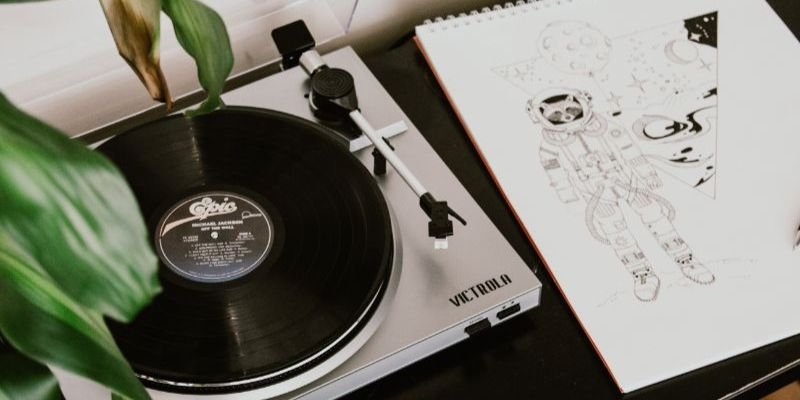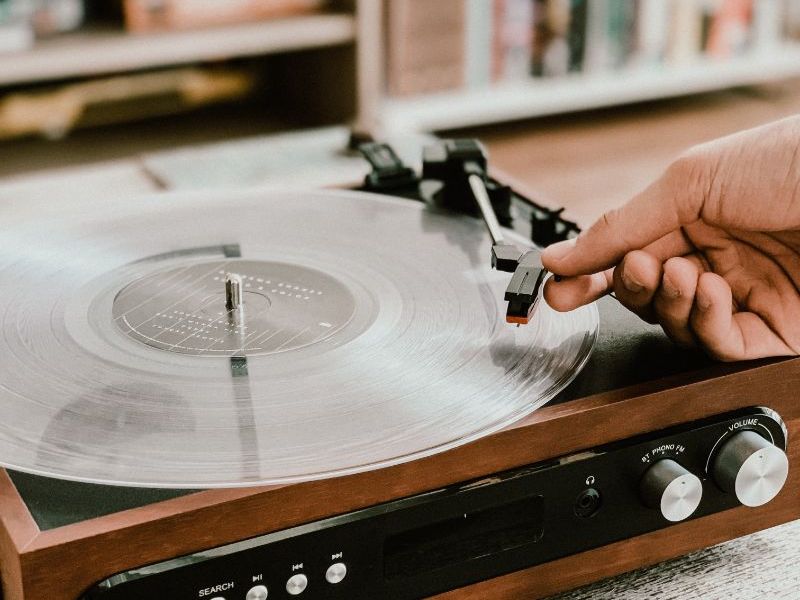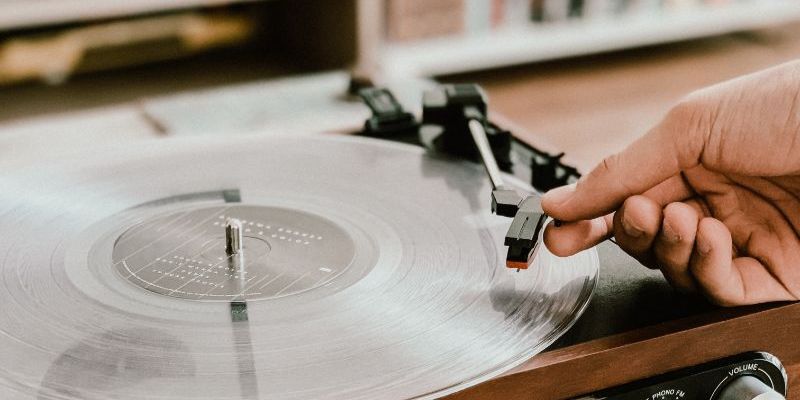A Quick Summary (TLDR)
Automatic
The tonearm will automatically come out of its position and lower itself onto the vinyl before returning to its position when the vinyl is done.
- Convenient and easy-to-use
- Low chance of damaging vinyl
- Does everything automatically for you
Manual
The tonearm needs manually lifting onto the vinyl and taken off once the music has finished, ensuring no damage to the vinyl or stylus is done.
- Usually provides the best sound quality
- Tracking force and anti-skate control
- More customisation available
Semi-Automatic
A slight combination of the two, the tonearm is manually placed on the vinyl, once the vinyl is finished the tonearm will lift up.
- Convenient and fairly easy-to-use
- Vinyl can be left untouched once started
- Stylus less likely to be damaged
Record players come in different forms, which ultimately alters the way that they work. Whilst searching for a record player, it won’t take you long before you get stuck between comparing an automatic and a manual one.
This can often be tricky to decipher and create a bit of an added extra headache when shopping for your new player. So, why not have a read below and find out just the difference between manual and automatic record players and figure out which one is best for your needs.

Difference Between Automatic and Manual Record Players
Let’s take a look at the different types of record players available.
Automatic Record Players
The automatic record player’s tonearm will come out of its resting position and be gently lowered onto the record at the proper location. It will then lift it back up and turn off the turntable once the vinyl is finished.
Record Players, which are automatic, will entice many beginners about vinyl to try it out for sure. They are easy to use, with just one click of a button playing the record due to the mechanical system having a direct link with the tonearm.
Pros Of Automatic Record Players
- Convenient, easy and great for first-time buyers
- Does everything automatically so there’s less chance of damaging the vinyl by misplacing the stylus
- The stylus won’t get damaged if you forget the record is ending
Cons Of Automatic Record Players
- Can ruin the sound quality and are seen to be less authentic
- Can be expensive and there tends to be less choice of table
You might like: record players vs turntables
Manual Record Players
As you would expect, manual record players mean that the user has to do everything themselves for the vinyl to play. This means you need to put more care into your record player. The process sees the user lifting the tonearm and placing the stylus delicately and accurately on the vinyl for the music to start. Whilst doing so, you have to ensure that you are not damaging either the vinyl or the stylus.
The same goes for when the record comes to an end. You have to be ready to scoop the tonearm up and return it back to its resting position. If not, you may suffer damage as the stylus continues to go round the last grooves of the vinyl.
Pros Of Manual Record Players
- Usually provides the best sound quality and authenticity
- Set your own tracking force and anti-skate
- Easier to customise and more selection
Cons Of Manual Record Players
- Keeps spinning at the end of the record so can be more susceptible to damage
- Requires slightly more effort to listen and can get expensive quickly
Semi-Auto Record Players
They combine the need to manually place the tonearm on the record player to start playing the vinyl but automatically lift the arm at the end of the record and return it before shutting off the platter.
There is actually a third type of record player, which bridges the gap in this debate. Semi-auto record players are more of a vintage spectacle, and you may struggle to find them on the market nowadays, but they have their place for many people.
Pros Of Semi-Automatic Record Players
- Convenient, easy and good for first-time buyers
- The stylus won’t get damaged if you forget the record is ending
Cons Of Semi-Automatic Record Players
- Can ruin the sound quality and are seen to be less authentic
- Requires you to place the stylus in the right place before playing
The ‘Sound’ Argument
It is important to note that many professionals and audiophiles in the field will vehemently argue that manual turntables are the best option for sound quality, and this alone should provide enough reason to opt for them. The theory goes that the resistance, which is created due to the stylus and mechanisms necessary for the automation creates slight friction that causes more inferior sound quality. Manual record players do not suffer from this and, as such, will have a much crisper, more quality sound.
Automatic players also often have a plethora of components that are obstructive and cause issues. Indeed, when it comes to vinyl and turntables – less really is more. With more features, there is more scope for loss of quality. The higher-end players have fewer parts that offer a much more compact and sleek design, which leads to crisper and more accurate audio.
Whilst it may not be much of an issue for some people, others are deeply concerned with the audio quality. These audiophiles are the type of hobbyists who are less likely to buy coloured vinyl than black ones because of the surface level distortion and more inferior sound quality they offer – you know who you are.
 Which Record Player Should I Buy?
Which Record Player Should I Buy?
Whilst many would argue that high-fidelity audio should be of the utmost importance when undergoing a vinyl listening experience, it is certainly not the be-all and end-all.
Automatic record players have their place in the market, and many often opt in favour of them. They tend to be generally budget-friendly whilst providing ease and convenience, which is incredibly appealing for many. On the contrary, if you are looking to start on a record player’s journey and want an immersive, engaging and top-quality experience, you would be better opting for a manual turntable.
As we have discussed, the sound is much better; the fewer components mean that the elements that you do have offer more scope for customisation and upgrading. On top of this, you can set your own tracking force and anti-skidding, which can be daunting for some, but if you are willing to learn, you can reap great-sounding rewards.
How Do You Decide?
Ultimately, it is up to personal preference and which one best suits your current situation. We would suggest that if you are a casual vinyl listener looking for convenience at a budget-friendly price, an Automatic player is probably the one for you. If you are more looking at getting the best possible experience and performance from your turntable, you should be sure to opt for a Manual player. Manual makes upgrading more accessible and is a more longer-term investment to grow.
You have to decide what you want out of your record player before you can decide what type you are going for. Indeed, maybe you would like to strike a balance between the two and opt for the more elusive semi-auto record players that can offer to bridge the gap between the two and provide a great solution to the dilemma.
Know The Difference
Regardless of which option you are edging towards, knowing the difference is vital before you fully commit. We suggest weighing up the pros and cons to see which side you fall upon. Once you have decided, it is a case of shopping around for the best record player for you before getting things set up and joining the wonderful hobby.

 Which Record Player Should I Buy?
Which Record Player Should I Buy?






